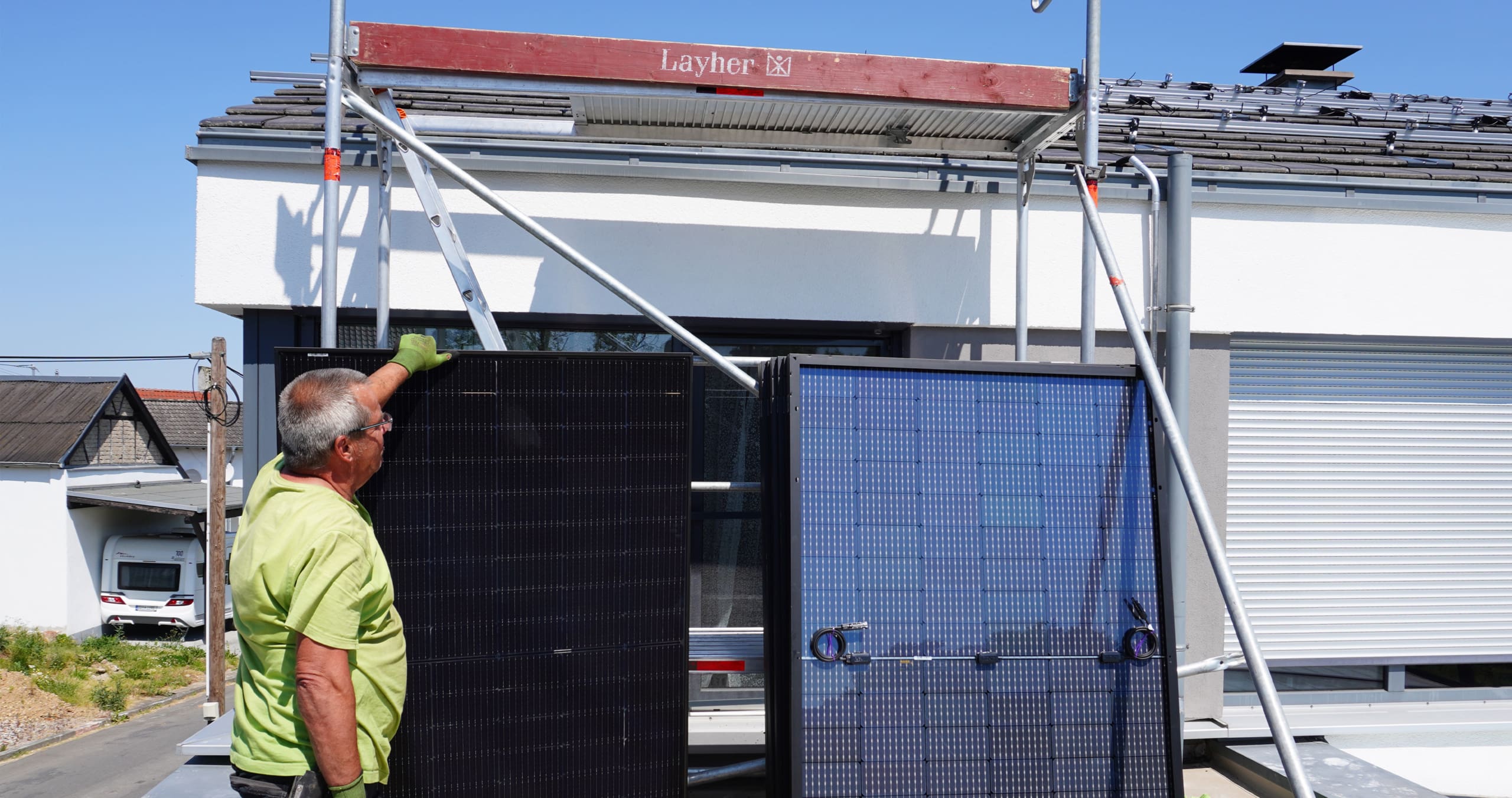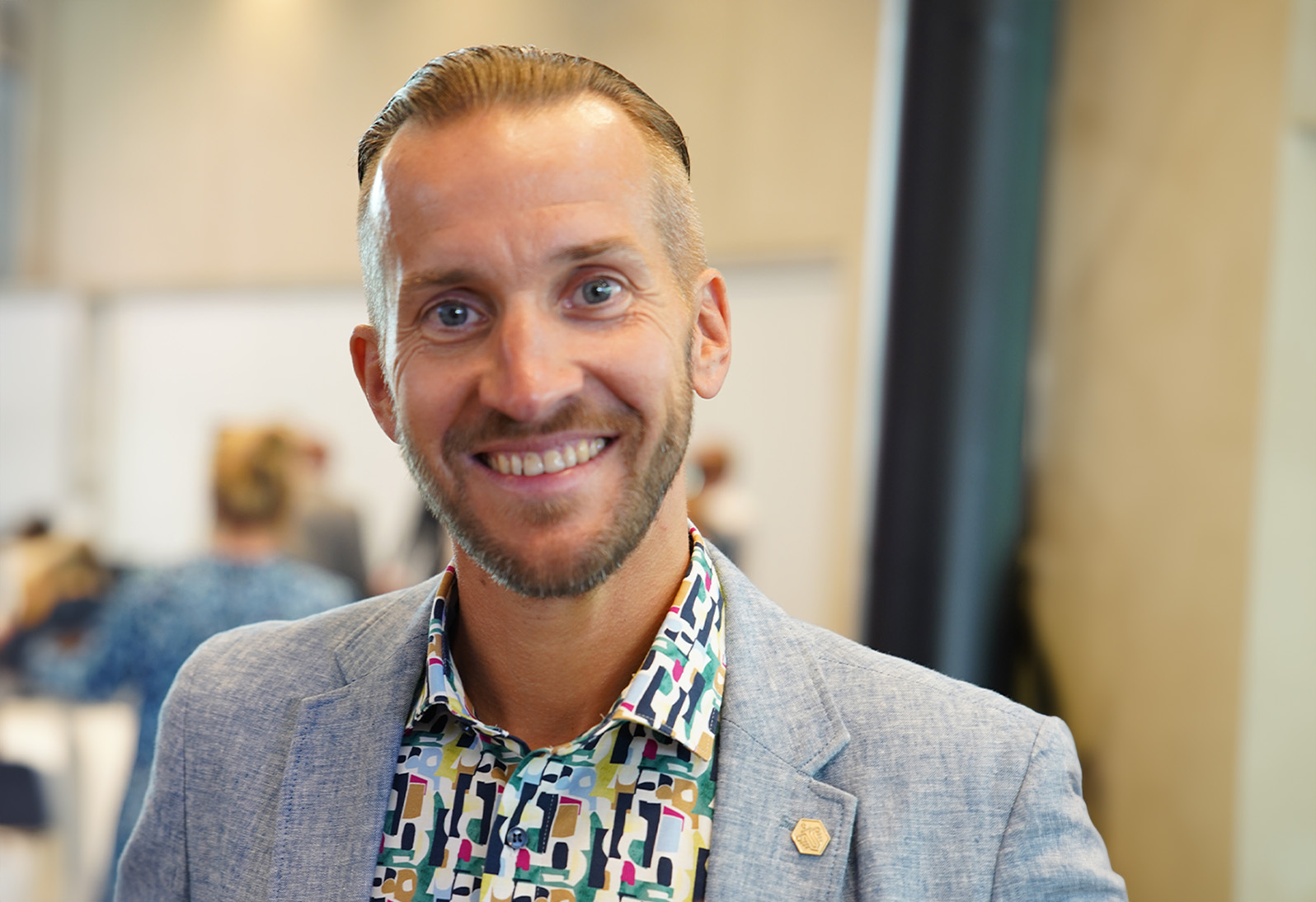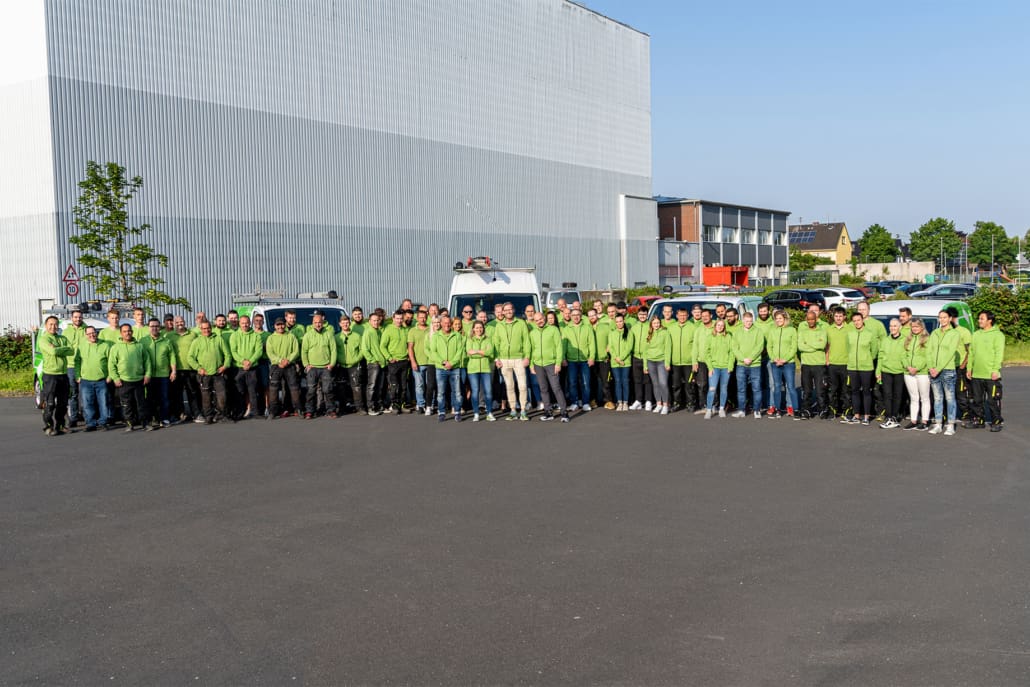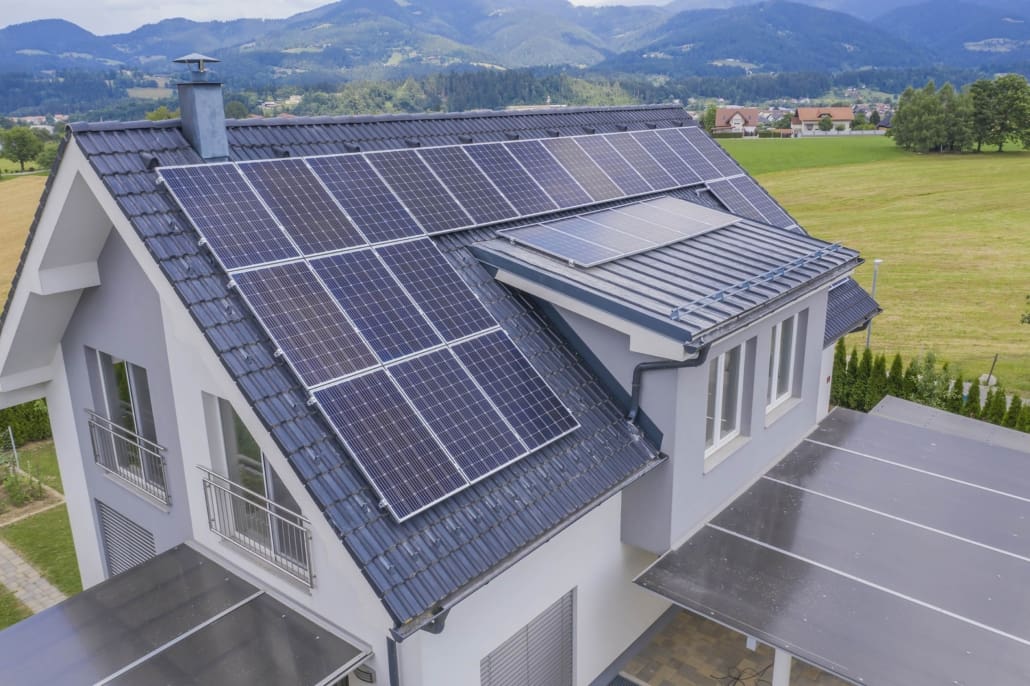Mission #solarize

Renewable energy takes real teamwork. To produce it sustainably and use it efficiently while also saving money in times of a dynamic energy market, you need to combine the strengths of a wide range of different people. Entrepreneurs, researchers, and private individuals all have one thing in common: They want to find out how to ensure a sustainable, independent, and reliable energy supply.
One of them is Markus Bolle, whose company, SOLARIS and more GmbH, works day in, day out to get solar power to the sockets of its customers in the Bonn area. SONNENALLEE spoke to Bolle, a member of the SMA partner program, and found out why he strongly believes in the future of renewable energy.
Mr. Bolle, what do you find so fascinating about solar energy?
I first came into contact with solar energy in 2008 while studying to be an electrical engineer, and the topic has kept me captivated ever since. The journalist Franz Alt once said: “The sun doesn’t send you a bill.” And that’s exactly how it is. You can produce a huge amount of green energy with a PV module, and it has been my mission since then to make the world a little greener every day under the #solarize banner.

How and when did you reach the decision to establish your own company and take on the energy transition yourself?
During my engineering studies from 2008 and 2012, I completed a student research project on PV modules and their operation in 2009. Back then, it was incomprehensible to me that you could simply put a module outside and it would produce energy. I then spoke to as many people as possible who had a PV system like that on their roof. They all said the same thing: With the sun (feed-in tariff from the electric utility company), the loan for the PV system pays for itself. After 10 to 15 years, the PV system has been paid off, and the rest of the money goes into your own pocket. At that time, I was also looking for a meaningful way to help make the future of energy generation sustainable. That’s why I decided to become self-employed in 2009 to build PV systems, and in 2011 I founded SOLARIS and more GmbH.
How can households and companies benefit from solar energy?
With solar energy, everyone can produce their own electricity. It also makes sense to go a step further and feed surplus energy into the utility grid or use energy management to transfer the energy to battery systems, wall boxes, or heating systems such as a heat pump. This then covers the entire cycle, from heating to the electricity demand for home appliances to charging electric cars. Thus, with a PV system, every household and company can quickly produce most of the energy it needs itself on its own roof. This is good not only for your wallet but also for the environment.
What do you think is important when planning a PV system?
Certain structural prerequisites must be checked for the installation of a PV system. The main aspects here are the roof orientation and the roof pitch as well as the size and characteristics of the roof surface, of course. In addition, the roof structure and any shadows must be considered in the planning phase. These are all factors that affect the efficiency of the PV system.
Another key point is to choose durable, high-quality products. To keep enjoying the PV system in the long term, you should make the correct decisions right from the start. This includes the long-term experience of the installation company and the product manufacturer. Many manufacturers now offer long warranty periods for their products. It is an advantage for end customers if the product manufacturer is still around in the future and they can thus rely on service, regular maintenance, and rapid assistance with any problems through the installer.
What particular challenges do your installers face?
Our on-site installers in the electrical field increasingly also need to have IT training, as every system should be connected with the Internet somehow. There’s a funny story that happened to me personally in 2013: Back then, I was the first PV business to start selling battery systems here in the region, and I was at the home of an older gentleman who really wanted to see all the data online. Once I had installed his PV system, I then finally had to connect the inverter to the Internet router. When I asked where the router was, he just said that he didn’t have Internet but he wanted to be able to view the data at an internet café. Unfortunately, it didn’t work that way.
What role does the installation company play in installing PV systems?
A very important one! At SOLARIS and more GmbH, we have specialists from all different areas, such as roofing, electrical engineering, and sanitation technology. Based on this expertise, we implement each project ourselves in its entirety, from planning to installation, in line with the applicable standards and technical specifications. We have installed well over 3,500 PV systems and more than 1,500 battery systems since 2011.
Quick installation: SMA inverter & BYD storage in 60 seconds!
How can solar energy systems achieve maximum efficiency?
Since 2013, our view has been that every PV system should also come with a battery system including energy management. Otherwise, the valuable solar energy cannot be used at night. The option of using a PV system with a battery system as a backup power supply has also become increasingly important in the past two years. The system operator thus remains independent from the electric utility company even in the event of a power outage.
What future developments do you expect to see in the solar power sector?
I think there will be some further technological advances in the storage sector in particular. Battery systems will thus become more efficient and also smaller. There is a similar situation with inverters, which will continue to become more powerful or be combined in one device with the hybrid class of inverters and battery-storage systems.
What is special about the SMA partner program?
The all-round support with marketing, the supply of measurement devices, and knowing that there is always someone there to advise and support you. The training courses and dialog in the network with other installation companies are particularly valuable to us as well. There is also plenty of personal contact and discussions on an equal footing with employees of the SMA partner program.
Thank you for the pleasant conversation.



